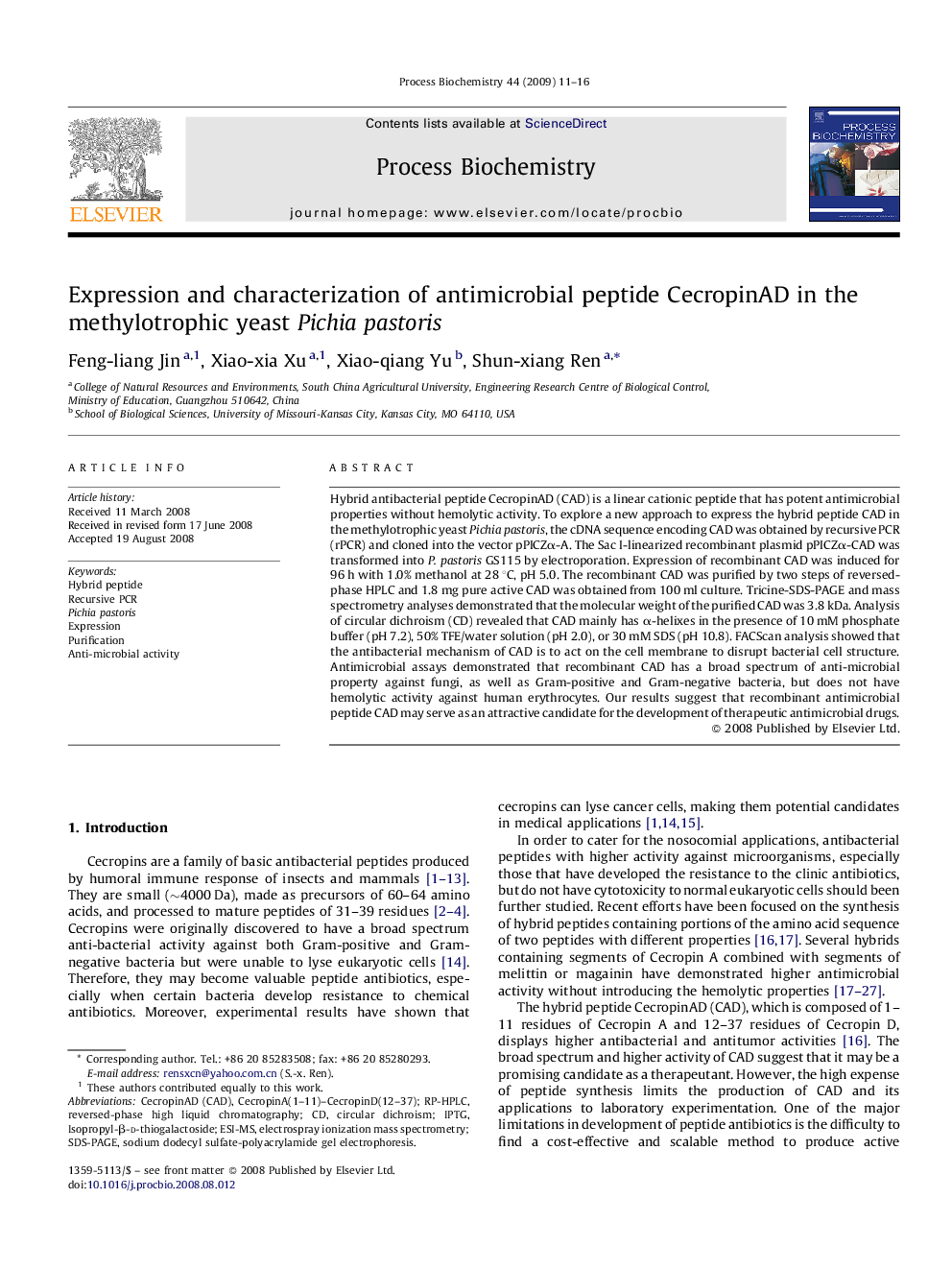| Article ID | Journal | Published Year | Pages | File Type |
|---|---|---|---|---|
| 35644 | Process Biochemistry | 2009 | 6 Pages |
Hybrid antibacterial peptide CecropinAD (CAD) is a linear cationic peptide that has potent antimicrobial properties without hemolytic activity. To explore a new approach to express the hybrid peptide CAD in the methylotrophic yeast Pichia pastoris, the cDNA sequence encoding CAD was obtained by recursive PCR (rPCR) and cloned into the vector pPICZα-A. The Sac I-linearized recombinant plasmid pPICZα-CAD was transformed into P. pastoris GS115 by electroporation. Expression of recombinant CAD was induced for 96 h with 1.0% methanol at 28 °C, pH 5.0. The recombinant CAD was purified by two steps of reversed-phase HPLC and 1.8 mg pure active CAD was obtained from 100 ml culture. Tricine-SDS-PAGE and mass spectrometry analyses demonstrated that the molecular weight of the purified CAD was 3.8 kDa. Analysis of circular dichroism (CD) revealed that CAD mainly has α-helixes in the presence of 10 mM phosphate buffer (pH 7.2), 50% TFE/water solution (pH 2.0), or 30 mM SDS (pH 10.8). FACScan analysis showed that the antibacterial mechanism of CAD is to act on the cell membrane to disrupt bacterial cell structure. Antimicrobial assays demonstrated that recombinant CAD has a broad spectrum of anti-microbial property against fungi, as well as Gram-positive and Gram-negative bacteria, but does not have hemolytic activity against human erythrocytes. Our results suggest that recombinant antimicrobial peptide CAD may serve as an attractive candidate for the development of therapeutic antimicrobial drugs.
